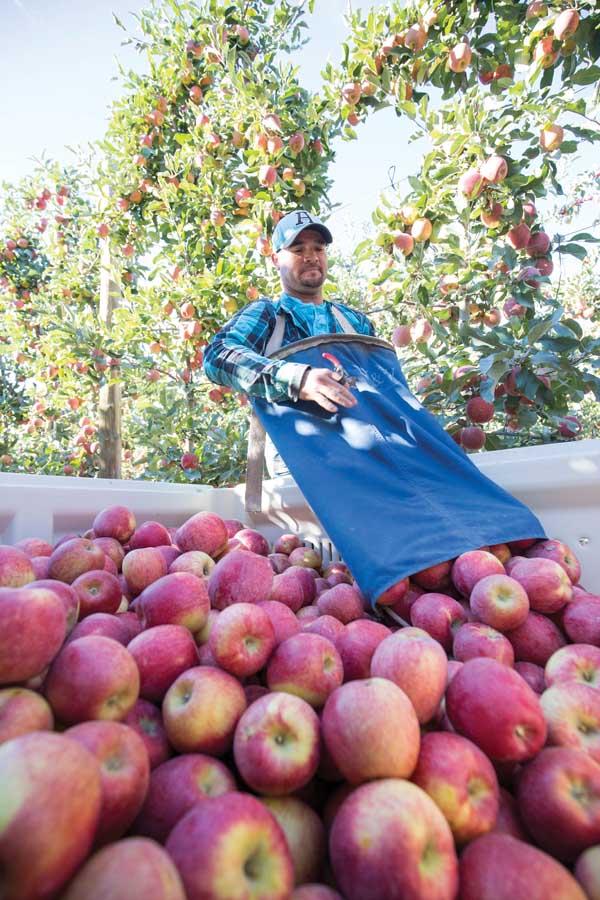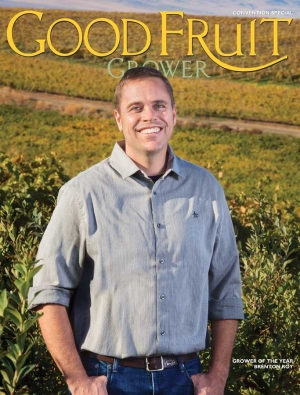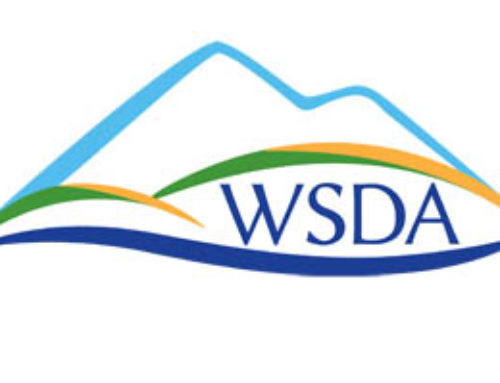This year’s drought put many growers in central Washington’s Yakima Valley in water-conservation mode, and many operations, including Oasis Farms, had water curtailed during the season due to junior water rights. Yet, availability of labor remains Brenton Roy’s top concern.

Alejandro Ibarra unloads a freshly picked bag during Oasis Farms’ apple harvest. A diversity of crops, including blueberries, hops, apples, and grapes, keeps workers busy harvesting from mid-June to early November. (TJ Mullinax/Good Fruit Grower)
“Labor is probably my No. 1, 2, and 3 concern for the future of the company, absolutely,” Roy said. “It’s a major issue for us.”
Oasis Farms experiences peaks and valleys with labor needs as harvest progresses from blueberries through hops, apples, and grapes, but harvest never really stops from mid-June to early November.
“There’s a challenge in maintaining focus for that long a time, farming crops while we’re in the middle of harvesting other crops, but we look at it as a challenge, and we’re constantly building the structure to be able to execute,” Roy said.
Oasis Farms employs a year-round crew of about 80 workers, which swells to 350 or 400 workers around July. “We scraped by this year, but I think there were a half-dozen periods this summer where we could have used a few more people,” he said.
Roy said he has considered using the H-2A program, but the upfront capital required to provide housing for workers and to implement the program—coupled with the high probability of litigation that comes from using the program—have held him back.
“It’s sad, because you’re bringing in people who desperately need employment and money and we’re willing to pay them well,” he said.
Brenton Roy, Oasis Farms

However, Roy noted his family has been farming on the Roza for a long time and experienced droughts over the years, and he said he’s no more concerned than he has been in the past.
“This is just a reminder that we have a weakness there,” he said. “Over the years, we’ve pretty much done everything we can do for efficiency.”
Roughly 90 percent of the farm is drip irrigated, with wells and ponds scattered throughout, and Roy said they have developed strategies to use less water on water short years. This year, he said, they were more diligent with water scheduling.
The biggest impact was choosing not to overhead cool many blocks that would have been cooled had there been more water. Roy said the decision means smaller fruit and sunburn, which will likely impact Oasis Farms’ profit this year.
– by Shannon Dininny






Leave A Comment